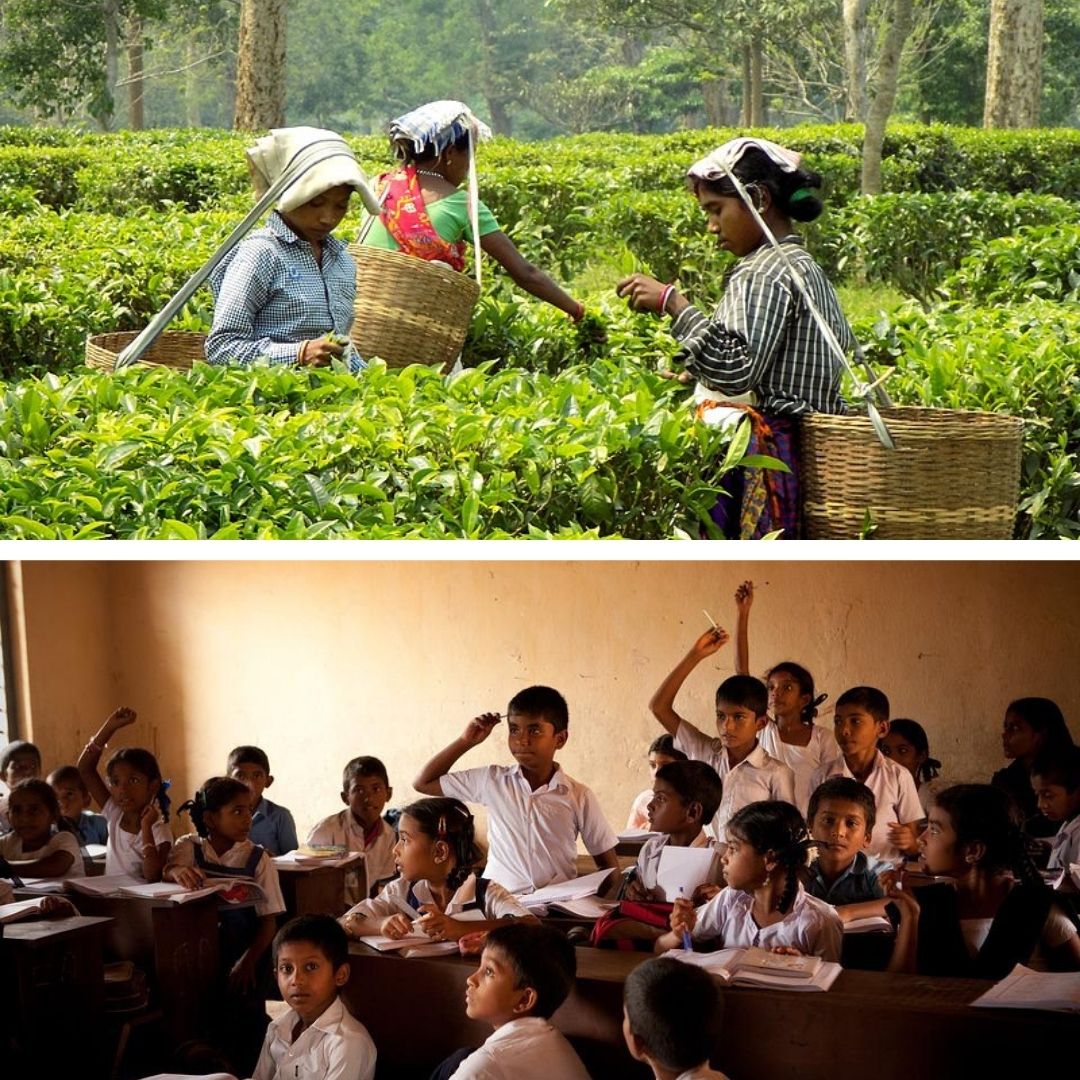Historic! In A First, Assam's Tea Gardens Get High Schools In 75 Years Of India's Independence
Writer: Tashafi Nazir
For most people, journalism sounds hectic and chaotic. For her, it's a passion she has been chasing for years. With an extensive media background, Tashafi believes in putting efforts on presenting a simple incident in the most interesting way.
Assam, 10 May 2022 9:36 AM GMT
Editor : Shiva Chaudhary |
A post-graduate in Journalism and Mass Communication with relevant skills, specialising in content editing & writing. I believe in the precise dissemination of information based on facts to the public.
Creatives : Tashafi Nazir
For most people, journalism sounds hectic and chaotic. For her, it's a passion she has been chasing for years. With an extensive media background, Tashafi believes in putting efforts on presenting a simple incident in the most interesting way.
In the 2017-18 state budget, the Assam government proposed setting up 200 tea garden schools, including 119 high schools, of which 97 will start this session.
For the first time in more than 180 years, high schools will start functioning in Assam's tea estates from today, May 10.
In 2020, the Assam government had established the State-Owned Priority Development fund to set up 119 model high schools in strategically-located tea estates. The State PWD was entrusted with constructing these schools at the cost of ₹1.19 crore each.
In the 2017-18 state budget, the government proposed setting up 200 tea garden schools, of which 97 will start this session. The remaining 22 schools are in various stages of construction and are expected to become functional by the next academic session, Firstpost reported.
Moreover, the Himanta Biswa Sarma-led Assam government will set up another 81 model high schools in tea garden areas and the newly-established Model High Schools will be upgraded to Higher Secondary Schools.
What Makes This Decision Historic?
In 75 years of India's independence, it is for the first time that high schools will start functioning in Assam's tea estates. Workers in Assam's tea gardens are mostly Adivasis from the Chota Nagpur plateau region, who were brought to the area by Britishers as indentured workers in the 19th century.
Even though they are considered a crucial vote bank, the 'Tea Tribes' have led isolated, marginalised lives in the gardens for many generations.
As per the Plantation Labour Act of 1951, it is the responsibility of the management of the tea gardens to give lower primary education (classes 1-5) to kids between 6 and 12 years of age. However, the education of the labourers' children has rarely been a priority of the management. Due to poor infrastructure and lack of basic facilities, many students have dropped out from school as literacy rates remained low in the tea garden youth.
According to a report by the Assam State Commission for Protection of Child Rights (ASCPCR), nearly 80 per cent of tea gardens in Assam were flouting the Right To Education Act, and illegally employing children in the gardens.
Without any high schools in their area, the children of tea garden workers were forced to go far from their homes, and in many cases, through dense forests, to attend one. Presented with such options, most would drop out.
In April 2022, CM Himanta Biswa Sarma said that apart from mid-day meals, the government plans to provide breakfast to students of these schools. He said that teachers are being appointed in model high schools in two categories — one set of teachers are explicitly recruited for these schools, and another comprises those transferred to such schools from already provincialised ones.
The CM also directed the Principals to dedicate themselves to transforming schools into ideal educational institutions. In addition, he asked the Inspector of Schools to make regular visits to these schools to support and guide the teachers and the students. Sarma added that the government intends to develop this as a successful model for the rest of the country to follow.
Vote Bank Politics
According to The Hindu report, the pay package for tea plantation workers has traditionally included the cost of education for their children. But tea estates in Assam, most of them ailing for the past 20 years, had been requesting the government to take over education and other "social costs" for the industry to survive.
The government first decided to establish 119 model high schools and then promising to take over 436 tea garden high schools. The main reason is the importance of plantation workers as a vote bank.
"Tea tribes" and "ex-tea tribes" (those who have moved out of the estates to pursue agriculture and other professions) comprise nearly 20 per cent of the state's total population of 33 million people. Around 1.1 million of them, employed across 803 major tea estates and over 75,000 small tea gardens, largely influence nearly four million community voters.
In 2016, the Bharatiya Janata Party (BJP) won over the plantation workers, once said to vote for Congress, to bag 26 of the 37 Assembly seats where they constitute the largest voting bloc. The Asom Gana Parishad (AGP), the BJP's regional ally, bagged four of these seats.
In last year's State election, the BJP improved its tally by winning 27 seats in the tea belt and adding two more in by-polls. The AGP bagged five of these seats.
Also Read: Breaking Taboos! Maharashtra Village Bans Age-Old Widow Customs, Sets Example For Others' To Follow
 All section
All section















